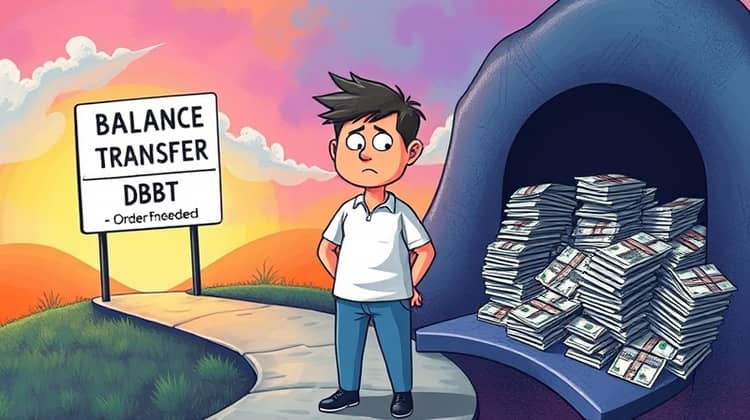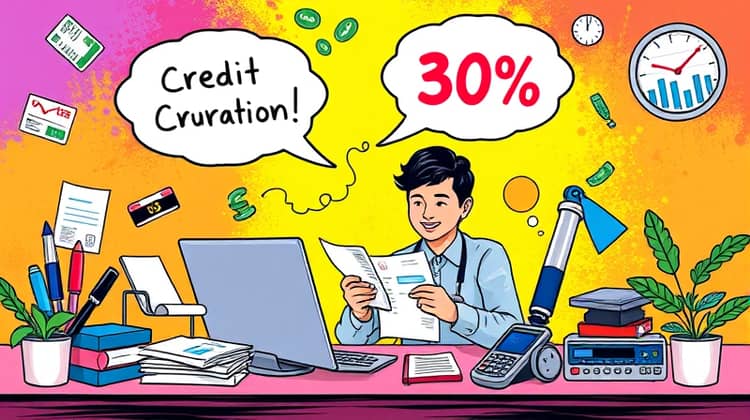Credit Card Debt: 6 Strategies to Stay Debt-Free

Credit card debt can be a heavy burden to carry. Many people find themselves trapped in a cycle of borrowing that feels impossible to escape. However, implementing effective strategies can help manage and eliminate this debt, provide financial peace of mind, and pave the way for a more secure financial future.
In this article, we will explore six practical strategies that can help you stay debt-free and regain control over your finances.
1. Create a Budget

Creating a realistic budget is essential for managing your finances effectively. It involves tracking your income, expenses, and savings to create a plan that allows you to live within your means.
A budget helps you to see where your money goes each month, and it can identify areas where you may need to cut back, especially on unnecessary expenses that can lead to credit card debt.
- List all sources of income and their respective amounts.
- Document all fixed and variable expenses to understand your spending pattern.
- Allocate a specific amount for savings and debt repayment.
- Review your budget regularly to update it and make necessary adjustments.
By establishing a budget, you’ll have a clear financial roadmap. This simple yet powerful tool can drastically change your relationship with money and help prevent credit card debt from piling up.
2. Pay More Than the Minimum

One of the most detrimental habits people develop is only paying the minimum payment on their credit cards. This approach leads to accumulating more interest, extending the debt period significantly.
To get out of debt faster, focus on paying more than the required minimum on your credit cards.
- Allocate any extra funds, such as bonuses or tax refunds, to your credit card payments.
- Set a monthly goal to pay a specific percentage above the minimum.
- Consider rounding up your payments for an extra cushion.
By paying more than the minimum, you reduce your principal balance more quickly, leading to less interest over time and a shorter repayment period.
3. Avoid Balance Transfers

While balance transfers may initially seem like a good way to manage debt, they can often lead to more problems. Many balance transfer offers come with high fees and higher interest rates after the promotional period ends.
Additionally, transferring a balance can simply postpone the problem rather than resolve it, leading to more debt on another card.
4. Use Cash or Debit for Everyday Purchases

Switching to cash or debit for everyday purchases can help you stay within your budget and avoid overspending. When you use cash, you become more aware of your spending habits and are less likely to make impulsive purchases.
Debit cards provide the convenience of credit cards without the risk of accumulating debt, as they draw directly from your bank account.
- Create a fixed weekly or monthly cash allowance for discretionary spending.
- Keep track of your cash flow to maintain awareness of how much you can afford to spend.
- Avoid using credit cards for small daily purchases to keep your spending in check.
By using cash or debit, you're more likely to stick to your budget, which can significantly decrease the chances of falling into debt. Additionally, it fosters a more mindful approach to spending, ensuring that you only buy what you need.
5. Keep Your Credit Utilization Low

Credit utilization refers to the percentage of your total credit limit that you're currently using. A lower credit utilization ratio indicates to lenders that you're a responsible borrower, which can positively affect your credit score.
Aim to keep your credit utilization below 30% for the best financial health.
- Monitor your credit cards regularly to check your current utilization ratio.
- Pay off your balances in full each month to avoid unnecessary debt.
- Request a credit limit increase to improve your ratio, but avoid increasing your spending.
Maintaining a low credit utilization helps protect your credit score and decreases your reliance on credit cards for everyday expenses and emergencies.
6. Seek Professional Help if Needed

If you find yourself overwhelmed by debt, seeking professional assistance can provide the guidance you need. Financial advisors or credit counselors can offer sound advice tailored to your specific situation.
These professionals can help you create a structured plan to manage your debt, negotiate with creditors, and uncover potential savings or resources.
Staying Debt-Free is a Continuous Effort

Recovering from credit card debt is often just the beginning of a long journey toward financial freedom. Once you've managed your debt, the work doesn't stop there. Staying debt-free requires ongoing vigilance and a commitment to maintaining sound financial habits.
The financial landscape can change, making it essential to adapt as necessary. Regularly reviewing your income, expenses, and budget allows you to stay ahead of potential financial pitfalls. You must also remain aware of spending triggers and temptations that can lead to unhealthy debt habits.






